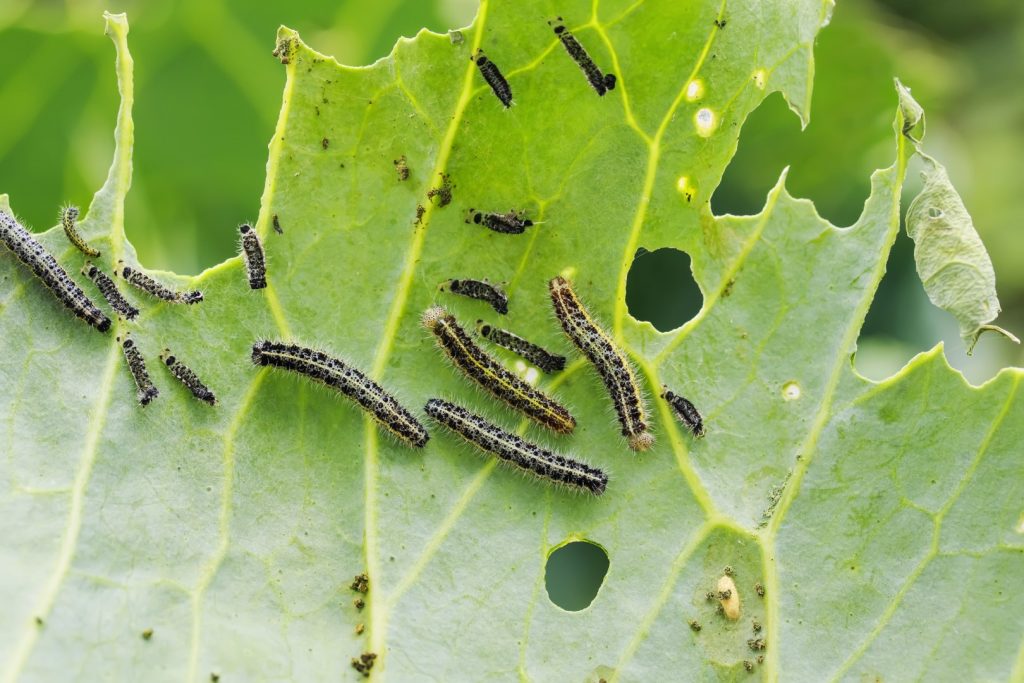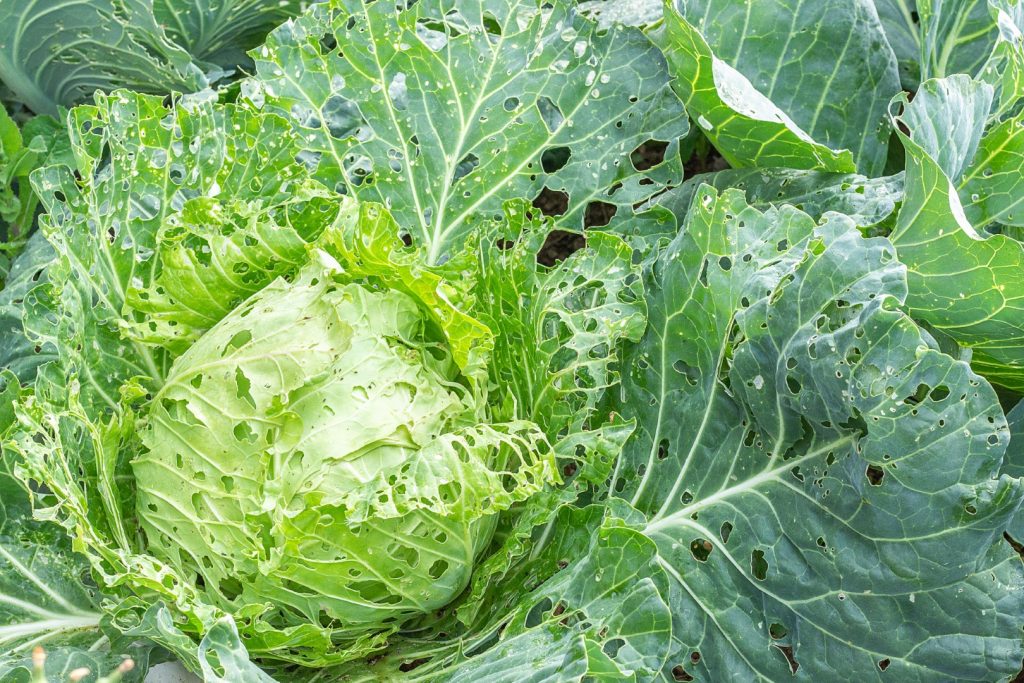In any garden, pests are likely to multiply if left unchecked, especially destructive insects and animals. Although you’ll find pests in your garden from time to time, they’re not usually a big concern. However, pests can increase to high numbers and result in more than just aesthetic damage.
Due to the potential damage that pests can cause, it might be best to consider safe options to keep your garden free of pests. The use of synthetic chemical-based pesticides is no longer a good option due to the potential dangers they bring. So far, an effective technique to control pests is to prevent them in the first place.
Luckily, there are several ways to prevent pests in your garden. Here are helpful pest control tips to keep your garden at its best all the time:

nasty black caterpillars crawl on green cabbage leaves and eat them in the garden on the farm in summer
Aside from attracting the beneficial insects in your garden, you should also find ways to attract other wildlife, such as frogs, birds, and toads that feed on insects. In most circumstances, placing a bowl or basin of water is enough. You can even add a toad house and wait if one will call it home. Often, they’ll create a depression in the soil where they wait for insects to pass by.
Although some homeowners don’t favor birds in their gardens since they feed on fruits, they also feed on insects. If there are already several birds visiting your garden, you’re on the right track. If not, you need to provide more food sources, along with some shrubs and trees for shelter. Also, remember that birds don’t usually feed in the open, without a nearby place to hide from predators. Finally, don’t forget to provide a source of fresh water.
Sadly, you shouldn’t welcome all animals in your garden. Some animals that might disrupt your garden are moles and rats. Since moles create burrows under the ground, these can ruin your garden and allow other rodents to easily access your plants. In such cases, your garden is in serious danger, especially if their numbers multiply. If you end up with a dead rodent in your garden, you may check out sites like deadanimalremoval.org to learn more about the services they provide.
Although pollinators are great additions to any garden, you should also consider other beneficial insects to help control pests. Some of these beneficial insects include lacewings, ladybugs, parasitic wasps, minute pirate bugs, soldier beetles, damsel bugs, and many more. These insects can help control the number of pests in your garden naturally by feeding on them or utilizing them as vessels where their young grow and feed on.
One way to attract these beneficial insects to your garden is to supply them with protein-rich pest insects that they’ll consume as prey, along with carbohydrate-rich nectar. Remember, however, that not any flower will work as a nectar source for beneficial insects. Instead, you have to create a particular floral structure that can provide the nectar they need. Some of the best plants that will attract helpful insects include dill, yarrow, laceflower, native buckwheat, cosmos, Shasta daisy, sunflower, mountain mint, Culver’s root, goldenrod, and hardy aster.
When you have various beneficial insects thriving in your garden, the less likely for pests to grow in large numbers. All it takes is maintaining a good balance in the environment.

Cabbage damaged by insects pests close-up. Head and leaves of cabbage in hole, eaten by larvae butterflies and caterpillars. Consequences of the invasion butterflies Pieris brassicae.
It’s important to note that some varieties of plants are attractive to pests than others. Therefore, the prevention of pests in your garden often requires you to select pest-resistant vegetables.
When you have winter squash in your garden, you might be facing an issue when an infestation of squash bugs occurs. You should settle for pest-resistant varieties, such as royal acorn or butternut, if you want to prevent pests.
Although moles prefer to eat insects instead of your garden plants, the underground tunnels they create can damage your plants. If you want to keep your garden free of pests, learn more about moles here.
A practical tip to prevent pests from infesting your garden is to use physical barriers between the plants and the insects. For example, you can utilize a floating row cover to protect plants that are prone to pests. It’s a lightweight, spun-bound material that you position on top of the plants or over wire hoops.
Ensure that you’ll provide adequate spacing in the cover and secure the sides to the ground to prevent the entry of pests under the edges. Once your plants reach the flowering phase, it’s best to remove the row cover to allow pollinators access to your plants.
If you want to prevent pests in your garden, it requires a certain degree of effort on your part. If possible, try to water your plants in the morning. Morning water can provide these two benefits:
A good approach is to water your plants deeply once or twice a week than regular shallow watering. If you have annual plants, you should provide more watering since they’re likely to have a shallow root system. As for rain, a brief episode is welcome for any garden, but too much can be an issue of concern. In such instances, it’s best to monitor and wait until your garden dries out entirely before watering again.
Conclusion
Pests can be an issue of concern for any homeowner who has a garden. Depending on the plants you’re growing in your garden, the prevention of pests should be your priority. Executing the necessary preventive steps is the best way to keep pests at bay. With the help of these helpful pest control tips, your plants will thrive beautifully and stay free of pests.